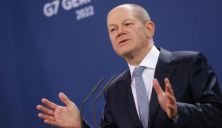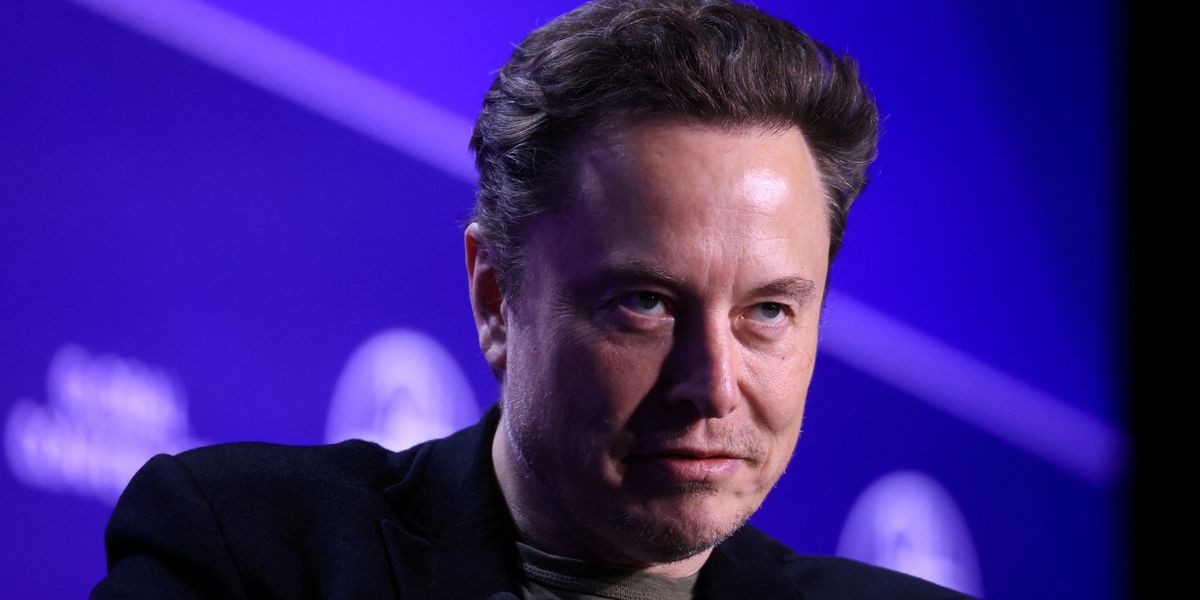By Dr. Diana Galeeva Germany will hold federal elections on Feb. 23. Last week, during a discussion at Oxford University, a well-informed speaker...
Vous n'êtes pas connecté
- English
- Français
- عربي
- Español
- Deutsch
- Português
- русский язык
- Català
- Italiano
- Nederlands, Vlaams
- Norsk
- فارسی
- বাংলা
- اردو
- Azərbaycan dili
- Bahasa Indonesia
- Հայերեն
- Ελληνικά
- Bosanski jezik
- українська мова
- Íslenska
- Türkmen, Түркмен
- Türkçe
- Shqip
- Eesti keel
- magyar
- Қазақ тілі
- Kalaallisut ; kalaallit oqaasii
- Lietuvių kalba
- Latviešu valoda
- македонски јазик
- Монгол
- Bahasa Melayu ; بهاس ملايو
- ဗမာစာ
- Slovenščina
- тоҷикӣ ; toğikī ; تاجیکی
- ไทย
- O'zbek ; Ўзбек ; أۇزبېك
- Tiếng Việt
- ភាសាខ្មែរ
- རྫོང་ཁ
- Soomaaliga ; af Soomaali
Rubriques :
 Maroc - EURASIAREVIEW.COM - A la une - Aujourd'hui 00:39
Maroc - EURASIAREVIEW.COM - A la une - Aujourd'hui 00:39
Europe Braces For A ‘New’ Germany
By Nick Alipour (EurActiv) -- The most attentive spectators at Germany’s many pre-election party conferences were easy to miss. While leaders courted the cameras on stage, European diplomats discreetly mingled with the crowds that gathered in the Berlin area on successive weekends to rubber-stamp lead candidates and manifestos. One week, observers might have spotted the British ambassador to Berlin at the City Cube conference centre talking to the lead MP on foreign policy of the Social Democratic Party (SPD). The next, they may have stumbled across a representative of the Portuguese embassy queuing for coffee at the Green Party conference at the same venue. Europe has been nervously watching the election campaign of the continent’s biggest economy, whose importance at a time of global upheaval can hardly be overstated. “The world doesn’t stop spinning with everything that is going on in America, the first 100 days of Trump, and even the European budget,” one European diplomat told Euractiv. “Europe needs to have someone to engage with in Germany.” For Germany’s neighbours, it may be reassuring that the country’s officials seem to be aware of their responsibility to Europe, with the four leading parties all campaigning on distinct visions for Germany’s future role in the European Union. The most likely outcome of Sunday’s ballot would see Berlin play a more muscular role on the European stage – if at the risk of stepping on some toes. It would certainly be a contrast to the last three years. German observers have watched in horror as the country went from purportedly ‘leading the free world’ under Angela Merkel to becoming an also-ran under Scholz. If the chancellor ever made a splash in Brussels, it was because of a botched relationshipwith Emmanuel Macron – the other half of the EU’s Franco-German ‘engine’ – and unilateral measures in moments of crisis. At other times, his unruly three-party coalition has been so hopelessly divided that it derailed the EU's legislative process, or failed to agree on any position at all in Brussels – the infamous ‘German vote'. Ending Germany’s ‘speechlessness' Frustration over this is rife among Scholz's rivals, especially his coalition partners, the Greens, who have often been blamed by extension for what they see as the chancellor's failures. At the start of the campaign, when journalists at a background briefing pressed Robert Habeck, the lead candidate of the Greens, on the central narrative of his campaign, his answer was clear: a strong focus on Europe. Scholz’s mixed record on Europe was also a preferred campaign target of election frontrunner Friedrich Merz, a former MEP, who has vowed to introduce a proactive leadership style that prioritises coordination and ends Germany's "European speechlessness". While the campaign was hardly more Europe-focused than usual, Merz and Habeck notably tried to set themselves apart from Scholz on Germany's leadership in the EU, noted Johannes Lindner, director of the Jacques Delors Centre. European topics gained slightly more traction with Donald Trump’s moves on Ukraine and tariffs, and a swelling debate over irregular migration and national border controls, he said.This has yielded four distinct scenarios for Germany’s future role in Europe. On one side of the spectrum, Habeck has advocated for federalist leadership that would make Germany’s vast resources available to Europe, including openness to new common debt and funding. On the other side, Alice Weidel, the leading candidate of the far-right Alternative for Germany (AfD), the second-most popular party, has promised to take Germany out of the EU and the Euro. Between the two, Merz promises a new, pan-European leadership style, but explicitly defends national policy interests. Meanwhile, Scholz stands for a status quo, in which the EU is hardly front and centre. “He didn’t even mention the EU once,” said one European diplomat after the chancellor’s keynote speech at the SPD’s election conference in January. In voters’ hands But the choice – and Europe’s fate – ultimately lie in the hands of German voters. As usual, the EU was low on the list of the most pressing issues for the electorate, with only 1% seeing it as a priority matter, according to a recent YouGov poll. Yet they are mostly aligned with the vision of the likely winner, Merz. According to a survey commissioned by the European Movement Germany (EBD), most voters back Germany's EU membership and want the bloc to do more, rather than less, to boost Europe’s defence, border security, and competitiveness. Unlike Habeck, however, they do not want Germany to lend more of its spending power to the bloc and are divided about further enlargement. Merz's Christian Democrats are cautious about both. Merz’s promise is that his government will bring new European momentum to areas like security and competitiveness, through stronger European cooperation and a strengthened single market, said Lindner. “Merz has underlined his appetite for leadership,” he noted. Whether he will succeed will depend on his ability to form a stable, two-party coalition at home and to coordinate closely with EU allies, Lindner added. The flip side That is not a given: Merz's appetite can translate into a lack of consideration. On migration, Merz has championed a 'Germany first' policy that involves permanent border controls and the rejection of all asylum-seekers that enter from neighbouring countries, which would all but undermine Europe's cooperation on borders and migration. His opponents have compared this unilateral approach to "Clint Eastwood" (Habeck) and "Viktor Orbán" (Scholz), with the chancellor accusing Merz of "burying Europe". Not to mention that some EU allies dreaded the prolonged period of German dominance under Angela Merkel during the sovereign debt crisis of the 2010s. But for now, Germany's neighbours seem satisfied that Merz has namechecked their priorities. “There are signs that the key players in Germany are prioritising the right issues, such as security and competitiveness,” said Sweden’s ambassador to Berlin, Veronika Wand-Danielson. Above all, she cares that Germany will regain its footing soon. “We hope that a new government will be formed as quickly as possible,” she told Euractiv. “We have so many common interests and so many common challenges and no time to wait.”
Articles similaires
Scholz Rejects Ukraine’s NATO Accession in the Near Future, Citing U.S. Position
German Chancellor Olaf Scholz has ruled out Ukraine’s accession to NATO in the near future, as the U.S. has rejected this proposal. This was...
Germany: Ukraine War, Impact Of Rearmament, Economic Woes Loom Over National Elections – OpEd
By Michael von der Schulenburg The war in Ukraine and its consequences will have a long-lasting negative impact on the political, security,...
Germany's far-right AfD basks in spotlight of Musk support
by Frank Zeller and Femke ColborneAll other German parties see the far-right AfD as a threat to democracy, but the anti-immigration party has a...
German ‘Democracy’: The Regime Bans Political Parties It Doesn’t Like – OpEd
In democracies, parties are supposed to rise and fall at the ballot box. However, in Germany a provision of the postwar constitution allows for...
Transatlantic Twilight: European Public Opinion And The Long Shadow Of Trump – Analysis
By Jana Puglierin, Arturo Varvelli and Pawel Zerka Lamps going out On the evening of August 3rd 1914, a friend visited the British foreign...
An Essential Guide to Germany’s 2025 Bundestag Election You Should Know.
Germany is gearing up for a crucial parliamentary election on February 23, following the collapse of the coalition government which was led by...
Hungary's Orban meets head of far-right German party AfD, calling her 'the future of Germany'
Hungary's nationalist prime minister on Wednesday hosted a German far-right party's candidate for chancellor in Germany's upcoming elections, a rare...
Outrage At Munich – Analysis
By Amrita Narlikar Following the World Economic Forum that convenes at Davos, another jamboree takes place in Munich. There is usually a fair...
German election result could spark Europe stock boom
A conservative win in Germany’s federal election on Sunday could trigger an explosive rally in the country’s stock market, particularly in small...
Les derniers communiqués
-
Adobe Brings Conversational AI to Trillions of PDFs with the New AI Assistant in Reader and Acrobat
Adobe - 21/02/2024
-
Laura Frigenti takes the Helm as Chief Executive Officer of the Global Partnership for Education
Global Partnership for Education - 05/12/2022



